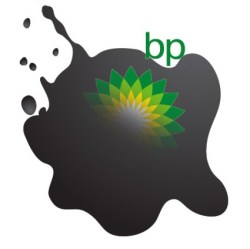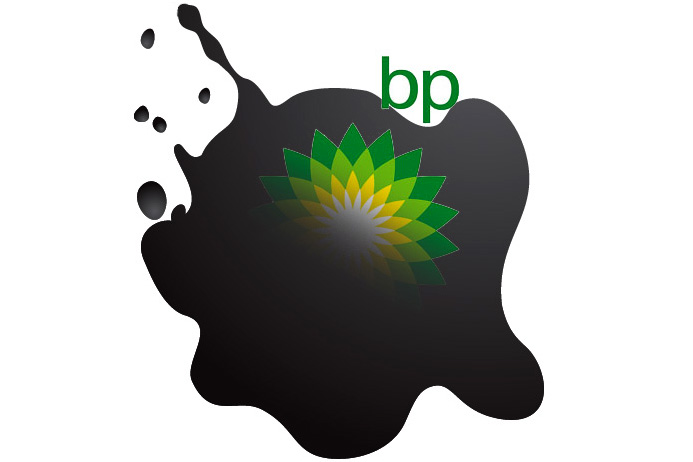 The 2010 Deepwater Horizon oil spill was gross. Really gross. But what about BP’s negligence in creating that gross oil spill? Was that negligence also gross?
The 2010 Deepwater Horizon oil spill was gross. Really gross. But what about BP’s negligence in creating that gross oil spill? Was that negligence also gross?
If you’re already tired of hearing the word “gross” over and over, you might want to tune out news of a trial that began today in New Orleans. The U.S. government and Gulf Coast states are seeking billions of dollars from BP in damages and fines. One of the key decisions that the federal judge must make in the case is whether BP was grossly negligent in causing the deadly explosion and subsequent oil spill, or whether the company was merely negligent. The stakes are big — big with a capital B. Billions of dollars are at stake.
The government says the company’s negligence was totally gross. But, like somebody who farts in an elevator and then asks everybody to please stop whining because they didn’t try to make it smell so gross, BP is denying that claim. From a statement issued by BP:
“Gross negligence is a very high bar that BP believes cannot be met in this case,” said [BP General Counsel Rupert Bondy]. “This was a tragic accident, resulting from multiple causes and involving multiple parties. We firmly believe we were not grossly negligent.”
If U.S. District Judge Carl Barbier rules that the company was grossly negligent, then it could be fined up to $4,300 per barrel spilled under the Clean Water Act. (Barbier is hearing the case without a jury.) The government says 4.1 million barrels spilled, having reportedly backed away from an earlier estimate of 4.9 million barrels. If the judge accepts that figure, and also rules that BP was grossly negligent, the company may have to fork out $17.6 billion to the American people in Clean Water Act fines alone.
And that figure doesn’t include additional fines and compensation for damage that the spill caused, which is expected to be billions more, over and above the tens of billions of dollars in settlements and cleanup costs to date.
If Barbier rules that the company was just plain ol’ negligent, however, the Clean Water Act fines would be capped at $1,100 per barrel. If he also accepts BP’s claim that no more than 3.1 million barrels of oil was spilled, then the company could be liable for up to $3.4 billion in Clean Water Act fines.
Opening arguments began in Barbier’s courtroom this morning, despite press reports that the parties are mulling a $16 billion settlement. That proposed settlement is opposed by environmental groups, which criticize the sum as paltry and say it is unlikely to be enough to fully restore the Gulf of Mexico. (This morning’s courtroom action doesn’t preclude the possibility that a settlement might yet be reached.) Without a settlement, the trial could take months to resolve. Hundreds of lawyers are involved, all ready to take their share. From The Washington Post:
The list of exhibits runs nearly a thousand pages, and lawyers have filed 126 depositions and the names of about 80 potential witnesses. The plaintiffs’ team has essentially built an entire new firm, with 300 lawyers, paralegals and support staffers dedicated to the case. BP has a similar battery of attorneys from four of the nation’s most prestigious firms.
Gross.


